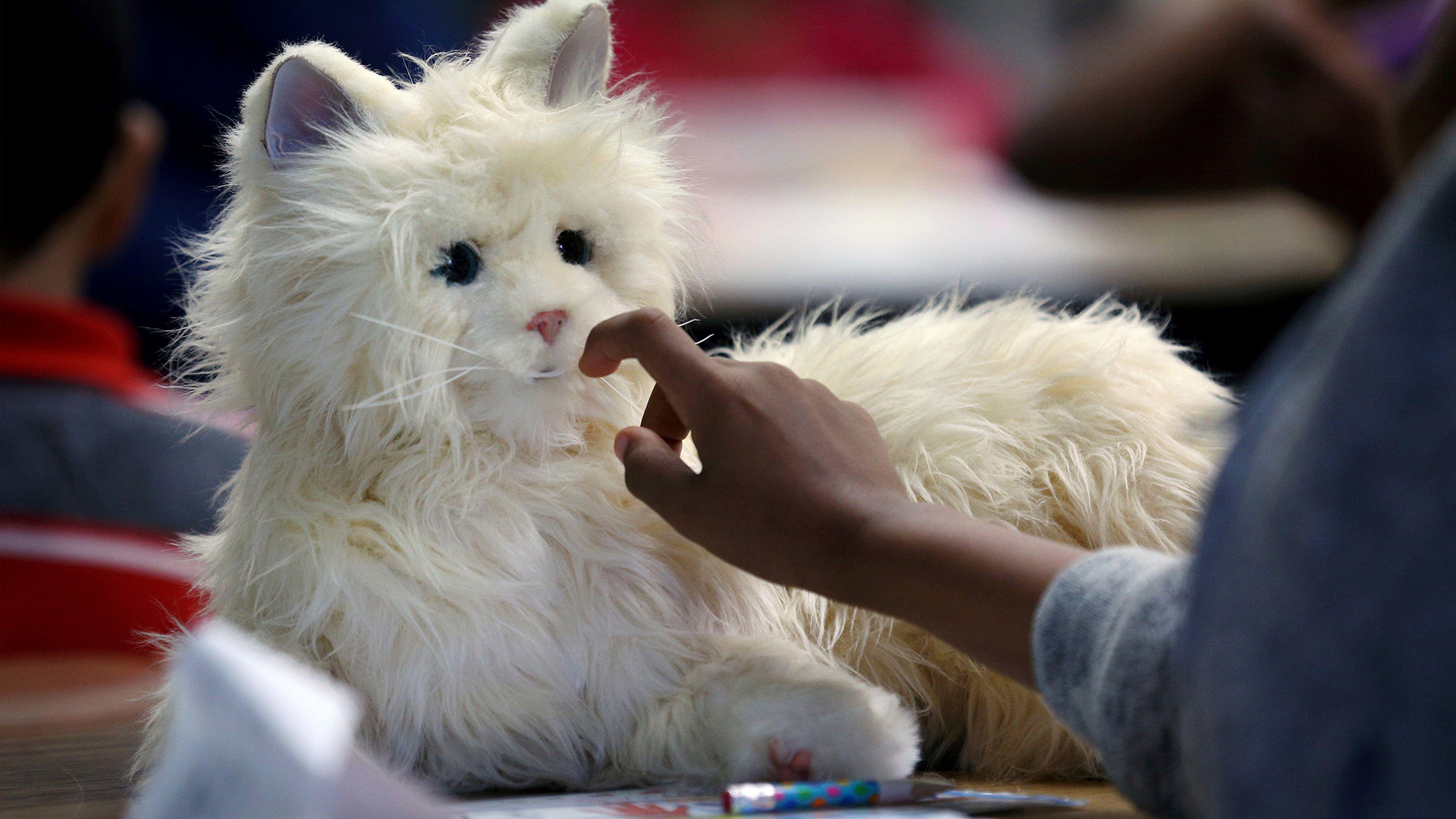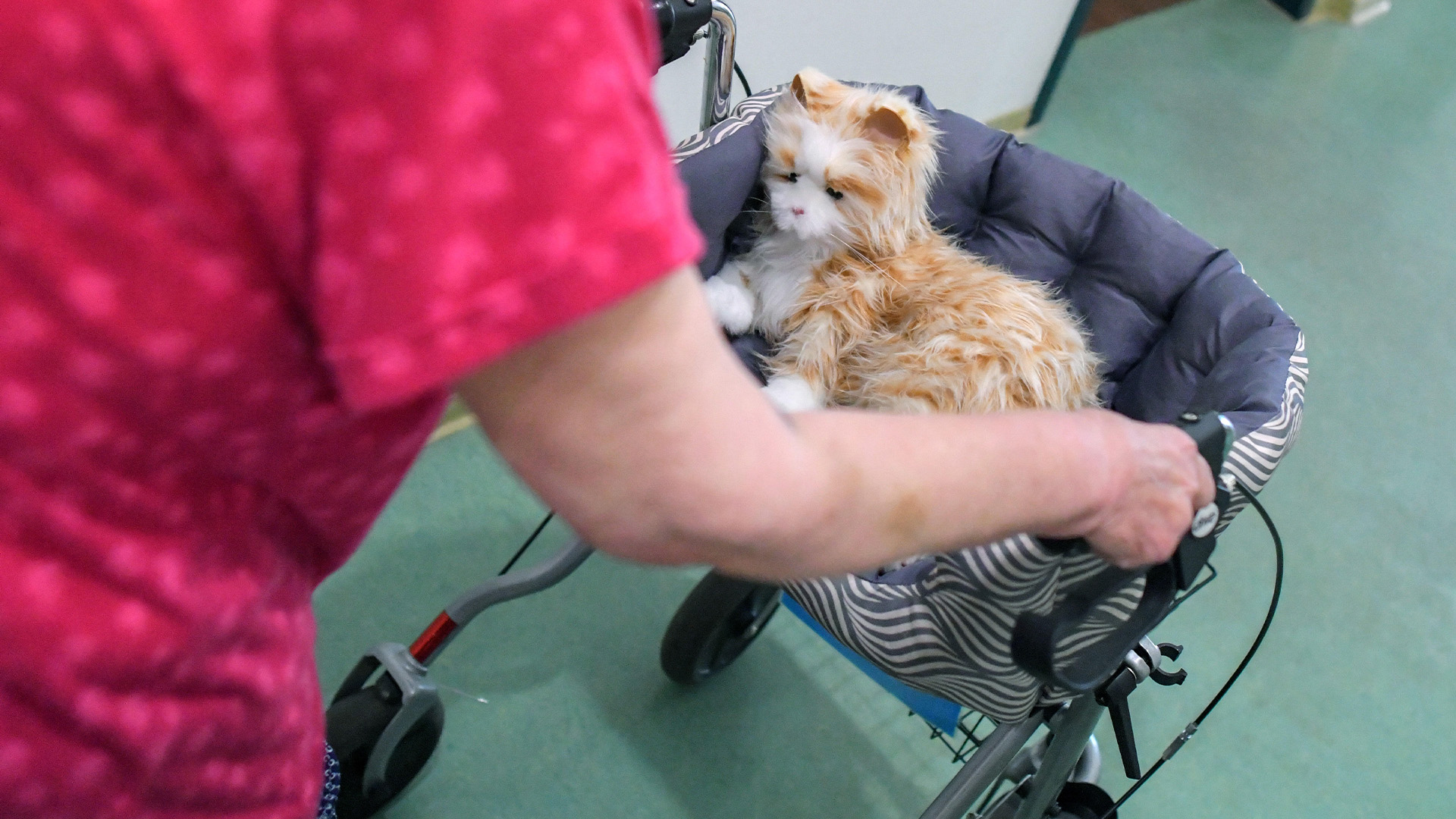Could robot pets be the future? Here’s what the experts are predicting
They’re already being used to help elderly people cope with loneliness and isolation

Just like us, our pets are living, breathing beings – just a different species. And that they’re creatures with minds of their own makes it all the more special when they decide to sit by us or spend time with us.
But could we see robot pets become more popular, even potentially replacing our familiar furry friends? They’re sometimes used in settings with elderly people dealing with loneliness, isolation or dementia, or with children who are learning how to take care of a pet. You’ll save money on the best dog food or cat treats, too, so could these robot pets become more widespread?
A new podcast from UK animal charity the RSPCA, Animal Futures, looks at the future of animal welfare with robot pets one area explored. In the first episode, journalist and RSPCA ambassador Kate Quilton speaks to Ted Fischer, the CEO and founder of Ageless Innovation, and Dr. Leanne Proops, an animal behavior specialist at the University of Portsmouth.
They discuss how robot pets can ease dementia symptoms, tackle loneliness and isolation, and play a role in therapy – as well as whether they could help improve animal welfare and play a bigger role in society as technology marches on.
Fischer explains how his company developed dogs, cats and birds that purr and paw, have realistic heartbeats, and verbally communicate back to their humans – and that some people have even been buried with their robot pets, such is their bond. We know there are so many ways having a pet changes your life, but are robot pets really the same?

For residents in three Washington, DC wards aged 60 and over, they certainly seem to be having a positive effect.
Dr. Proops, meanwhile, describes her research with children, in which she decided to see whether they’d prefer a robot pet or a real one. We know there are so many ways pets are in an important part of life, but are robot pets really the same?
PetsRadar Newsletter
Get the best advice, tips and top tech for your beloved Pets
Gemma Hope, RSPCA Assistant Director of Policy, Advocacy and Evidence, said, “Robot pets is a really fascinating topic. While many of us at the RSPCA and our supporters couldn’t imagine replacing our much-loved pets with a robot, our research shows more than one in four (26%) would consider it.
Remember these original robot pets? Well they’re making a comeback! You can feed it, play with it, give it medicine, flush after it’s used the bathroom, check it’s health and discipline your Tamagotchi if he bothers you when he’s happy, fed and all cleaned up.
“In this episode, we hear how in some settings, like care homes or therapy, robot pets are bringing amazing benefits. But as more robot pets are coming on the market this year, and with AI likely to make them more realistic, we are also exploring what impact this could have on our relationship with animals – both good and bad.”
Find out more about the RSPCA’s Animal Futures project on their website. Meanwhile, you can take a look at our pet tech coverage here.
You may also be interested in: When robotic pets cheered up seniors in lockdown

Adam is a freelance journalist specialising in pets, music and culture, and mental health and wellbeing. He investigates and writes the large majority of news on PetsRadar, and collaborates with veterinary experts to produce informative pet care content.
Adam has a journalism degree from Southampton Solent University and a masters degree in Magazine Journalism from Cardiff University. He was previously senior editor at dog advice website DogTime.com, and has also written for The Independent, GoodToKnow and Healthline.
He owns two rescue cats, Bunny and Dougie, and has also previously had a rabbit, fish and Roborovski dwarf hamsters.


